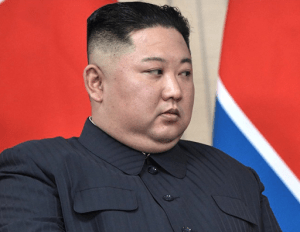
The involvement of North Korea in supporting Russia’s war in Ukraine, if true, carries significant geopolitical implications, particularly for South Korea.
Arms Deals and Military Cooperation: Reports about North Korea sending troops or supplying Russia with weapons, including artillery and rockets, would deepen military ties between North Korea and Russia. This would not only help Russia in its ongoing war efforts but also embolden North Korea’s geopolitical ambitions, especially in the face of international sanctions.
Nuclear Proliferation Concerns: North Korea, known for its nuclear ambitions, may share expertise or technology with Russia, raising alarms in the international community. This could indirectly affect South Korea’s national security.
Strategic Position: South Korea is walking a fine line between maintaining its alliance with the United States and ensuring security against its northern neighbour. Any sign of North Korea’s increased militarization or alignment with Russia directly impacts South Korea’s defence strategy.
Increased Military Tension: If North Korea becomes more involved in the war and directly supports Russian operations, this could provoke a military response from the West or heighten regional tensions. South Korea, as a U.S. ally, might find itself in the crossfire, especially if the U.S. and its allies escalate their response to North Korean actions.
Sanctions and Isolation: If North Korea’s involvement escalates, international sanctions on the country could tighten further, and South Korea could face diplomatic pressure for any perceived support of its neighbour. South Korea’s economic relations with the U.S. and Europe could be at risk if it is seen as either directly or indirectly condoning North Korea’s actions.
Trade with Russia: South Korea is not likely to trade openly with Russia, as it is an economic partner of the West. However, if the North-Korea-Russia alliance solidifies, South Korea could find its economic and political strategies undermined in a region increasingly influenced by Russia and China.
Arms Race: With North Korea’s growing ties to Russia, South Korea might need to significantly increase its military spending. This could result in a regional arms race, which would strain South Korea’s resources and create an atmosphere of continuous conflict in Northeast Asia.
Security Alliances: South Korea would likely seek to strengthen its military alliance with the United States and other regional powers such as Japan. This could mean more joint military exercises and a stronger regional defence presence, particularly in the face of a growing Russian-North Korean partnership.
Nuclear Weapons Debate: If North Korea provides weapons or resources to Russia, it may intensify the debate within South Korea over whether it should develop its own nuclear capabilities as a deterrent. This would spark a major shift in regional security dynamics, possibly pushing other neighbouring countries like Japan to follow suit.
West’s Response: The West, including NATO and the U.S., would be extremely concerned about North Korea’s expanded role in the conflict. South Korea might be pressured to either distance itself from North Korea or further strengthen its defensive capabilities in anticipation of growing threats.
China’s Role: China would likely be monitoring these developments closely. As a close ally of North Korea and a strategic partner of Russia, Beijing would aim to maintain a delicate balance. South Korea could face diplomatic challenges in maintaining its own relationship with China while aligning itself with U.S.-led efforts to isolate Russia.
South Korea is in a precarious position as North Korea’s involvement with Russia in the Ukraine war escalates. On one hand, South Korea must strengthen its defence and safeguard its relationships with its Western allies. On the other, it must navigate the increasingly complex regional relationships, particularly with China and Russia. The heightened security risks may push South Korea into an arms race or force it to reconsider its nuclear policy, marking a significant shift in regional stability.

No comments:
Post a Comment